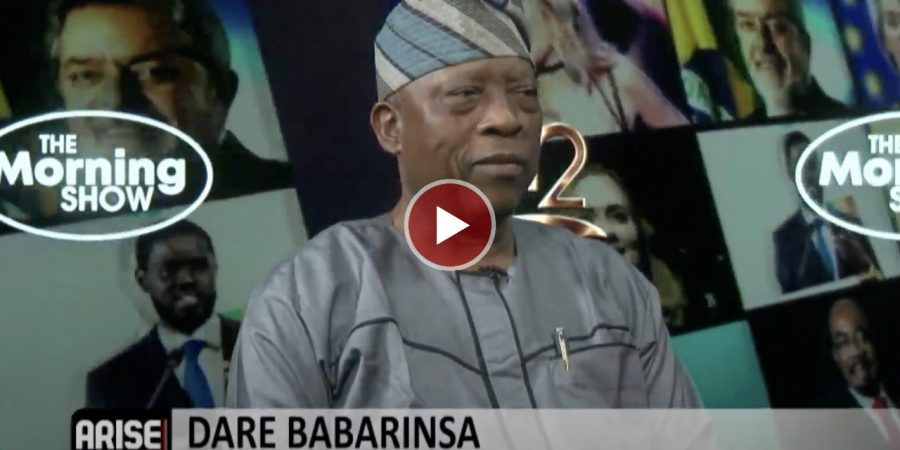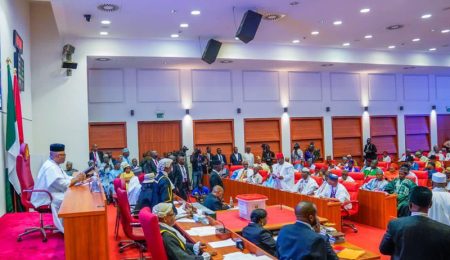Renowned Nigerian journalist and author, Dare Babarinsa, has made a compelling case for a return to the disciplined and decisive leadership style of General Murtala Muhammad, stating that Nigeria is in dire need of leaders who govern by example.
Speaking during an interview on ARISE NEWS on Tuesday, Babarinsa highlighted key achievements of the late military ruler during his brief but impactful tenure in office.
“He was the first Nigerian politician who wanted a new state, and he went ahead and pursued it,” he said. “By February 1976, he has created additional state, making Nigeria from a 12-state federation to become a 19-state.”
He also recalled how Murtala initiated the move to shift Nigeria’s capital from Lagos to Abuja, following widespread concern over overcrowding in Lagos. “Before that time, there had been an agitation that Lagos was overcrowded as the capital of Nigeria. Before you knew it, he has established the Justice Akeola Gudapane that finally recommended Abuja as the federal capital of Nigeria,” he explained.
Hussein credited Murtala with laying the groundwork for the presidential system Nigeria still practices today. “The constitutional draft committee inaugurated on February 4th, she wrote to me, will recommend the presidential system of government, and that’s what we are still operating into today.”
According to him, Murtala’s legacy is evident in several aspects of Nigeria’s governance structure. “You can see the creation of states. You can see the movement to Abuja. You can see the federal presidential system of government. You can also see some of the controversial decisions that they took, like the taking of the military. You can see the federalization of the legal corporations across the country.”
He praised Murtala’s bold and swift decision-making style, contrasting it with today’s leadership. “Murtala believed that government should take action. Once a nation is taken, it should move ahead. You don’t need to be temporizing,” he said. “Up to today, politicians don’t do things immediately for information. As if politicians can do things immediately.”
On foreign policy, Hussein noted the late leader’s impact on the liberation movements in Southern Africa. “In the foreign policy, you can see that he energized Nigerian foreign policy by aligning Nigeria with the liberation struggle in South Africa,” he said. “During Murtala Muhammed’s period, he was able to domicile power in Dodambara. He knew who was really in charge of Nigeria.”
While acknowledging the unintended effects of some of Murtala’s purges in the civil service, Hussein argued that the public largely welcomed the actions at the time. “Some of the purges may have had unintended effects, but at the period Murtala was carrying out those purges, Nigerians were very happy.”
Discipline, he said, was central to Murtala’s leadership and is still lacking in Nigeria today. “Part of the thing is the discipline that Murtala complained about. We have been unable to cure our people of discipline,” he lamented. Recalling one memorable incident, he added, “The famous going to the post office early in the morning, people were not on ground, and he got them booted out, arriving at places, places unannounced. We need that kind of push at this time.”
He summed up his thoughts by stressing, “I think what we need more now is governance by example. If we follow Murtala Marwan’s example, things are going to be better for them, especially in the personal conduct of leaders.”
Addressing the issue of ghost workers during Murtala’s era, Hussein said the menace was largely orchestrated by civil servants. “I’m sure you know that Minister cannot manufacture ghost workers. Ghost workers are those inflated list of workers, usually by civil servants. They know what to do. They give them names, they give them numbers, and then they know what to do,” he said. “Unfortunately, I can’t remember anybody being punished for manufacturing ghost workers, both at the state and the federal level, and that shows us that the impunity that Murtala tried to address will continue to be that kind of impunity.”
On the suggestion that Nigeria remains a work in progress, Hussein agreed, saying, “It seems to be unending.”
Faridah Abdulkadiri
Follow us on:

